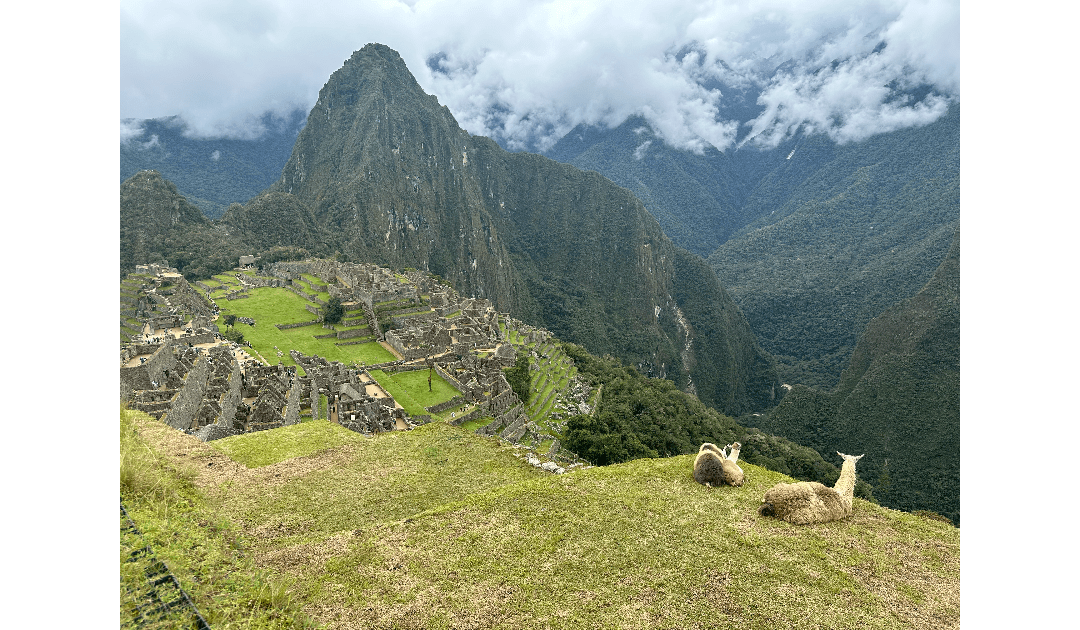It’s been over a month since my last post: we have been on holiday in South America. Machu Picchu was on Claire’s bucket list, and it did not disappoint. We were blessed with a wonderful guide for most of our almost four week tour, Berner Torres. Berner told me that one theory about Machu Picchu is that it was a sort of Inca University. As with several of the ancient sites that Berner took us to, Machu Picchu was certainly an observatory. It makes sense to me that observing the movements of the sun, moon, and stars, and interpreting their role in the seasons, and lessons to be derived for agriculture, would imply an institutional role in preserving that knowledge and passing it down the generations. I asked Berner if there was any evidence of a library. He explained that there wasn’t, and that the Incas didn’t have writing as we know it, but that perhaps they encoded information in weaving textiles.
Berner was very informative about his ancestors the Incas. Certainly their building and civil engineering ability is mind blowing. They were also adept at metallurgy and working the local metals such as gold. What I hadn’t fully appreciated is quite how short-lived the Inca empire was. A paper on Machu Picchu by Henry Petroski in American Scientist tells me that construction began around 1450 and that it flourished until 1540 when it was evacuated as the Spanish invaders crushed the Inca empire. An information board at an archaeological site just north of the Inca capital city, Cusco, showed fourteen generations of Inca kings, stretching from Manqo Qhapaq in the 12th century to Attawalpa in the 16th.
The Inca empire ended during the lifetime of my 10th great-grandfather, Edmund Standen. His elder brother, the Elizabethan Spy Sir Anthony Standen, will have handled Inca gold. As Daphne Du Maurier recorded in her aptly named Golden Lads, Sir Anthony Standen accompanied Robert Devereux on his expeditions to Cadiz and the Azores where they relieved the Spanish of much of their Inca gold. Golden Lads was an important source for my own account of Sir Anthony’s life, The Spy who Sank the Armada.

